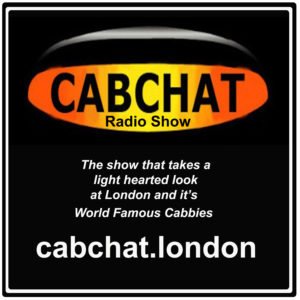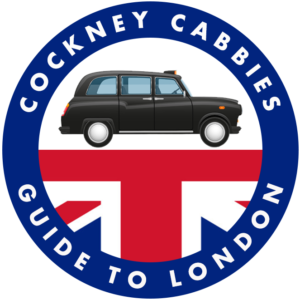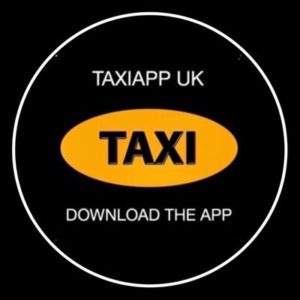by News Desk | Sep 4, 2014 | UK News
A controversial minicab company which brought London to a standstill this summer is heading to Birmingham.
Uber is planning to set up in Birmingham and is advertising for a manager to run the operation – from London.
In June Hackney Carriage drivers staged a mass protest in central London because they claim the Californian company was threatening their business.
Uber works by allowing customers to order one of its private cabs using a smart phone app and getting exact details of how long they will have to wait and what the fare will be.
Although a number of taxi and cab firms currently allow online and smartphone bookings, the San Francisco-based firm is unique in that it is purely app-based and does not take orders over the phone.
The service launched in London in 2012 and in Manchester in May.
But it has had a temporary injunction stopping it from operating in Frankfurt because the German authorities are not satisfied its cabs have the necessary licences.
In Birmingham, Black Cab drivers are not planning a protest.
Mohammed Taj, from the Birmingham Black Cab Drivers’ Association, said they were not worried by Uber’s imminent arrival, but were concerned its drivers would not have to undergo the same strict vetting its members did.
“These kind of app-only companies haven’t been very successful in Birmingham and several have tried to operate here and failed,” he said.
“We already have several black cab companies who operate using apps so Birmingham people are well used to them.
“What does concern us is that because it’s an app-based company, will they have to go through all the scrutiny and checks we do, like enhanced CRB checks and doing ‘the knowledge’ like our drivers do?”
A spokesman for Birmingham City Council said until Uber started operating in Birmingham they could not comment on the licensing arrangement.
“Until they start we don’t know if we treat them as Hackney Carriage or private hire drivers as it seems they fall between the two,” he said.
“Because they operate on a meter system that makes them Hackney Carriages, but if they have to be pre-booked and cannot be hailed in the street, that means they are private hire.”
A spokeswoman for Uber said it was too early to discuss its Birmingham operation.
“We are currently operating in London and Manchester in the UK but are looking to expand to other UK cities in the near future but can’t give specific details on our launch plans at the moment,” she said.
by News Desk | Sep 4, 2014 | London News

The London Taxi trade has been subjected to many improper decisions by the Mayor and TFL.
The London Taxi Age Limit is improper and unlawful, and deliberately causes financial hardship to taxi drivers, who are the group of workers most badly affected by toxic pollution.
The Mayor has failed in his Duty of Care to protect the Public and urgent action needs to be taken.
The Mayor is due to appear before the Environmental Audit Committee on Wednesday 10th September and should be required to explain why he has implemented the London Taxi Age limit which will not reduce pollution as proven by scientific evidence.
London Taxi Protests will take place before the Inquiry in the hope that this point is not overlooked.
Drivers will stage a ‘Go Slow’ in Central London at 2pm on Tuesday 9th September , the day before the Air Quality Inquiry hearing.
C.A.B hope that drivers from all trade organisations will support the protest.
The Committee is urged to ask The Mayor;
‘’The Mayor of London acknowledged in a written report to the Environmental Audit Committee in 2011 that the new Euro Emissions standards were not delivering reductions in pollution.
He said:
‘’A Euro 5 car, for example, emits around five times as much direct NO2 as a fifteen year old car. ‘’
The Mayor was asked on many occasions by London Assembly Members to at least conduct testing to prove that scrapping taxis would reduce emissions. He point blank refused to conduct a single test
In 2013 Defra released a report after the Environmental Research Group tested 10,000 taxis which confirmed that the new taxis were creating more pollution than those that had been scrapped.
Emissions reduction of PM could have been achieved by use of Clean Diesel, an Engine Clean Up Process, or retrofitting Diesel Particulate Filters.
Why has the Mayor needlessly scrapped 3000 taxis and why does he continue with this improper policy of scrapping taxis which are cleaner than the new taxis?’’
For further info see the links
http://taxileaks.blogspot.co.uk/2014/09/shock-result-air-pollution-highest-in.html
http://taxileaks.blogspot.co.uk/2014/08/the-unlawful-and-improper-london-taxi.html
by News Desk | Sep 3, 2014 | London News
by News Desk | Sep 3, 2014 | London News
Taxi driver needed stitches in his head after being hit with a stick by a physicist desperate to get to the opera
An opera lover beat a cabbie over the head with his ornate walking stick and swore at him because he feared he would miss a performance of Puccini.
Peter Williamson, a retired doctor, swore at the cab driver as he shouted at him and asked where they were going because he feared he would be late for the open air show in Holland Park, west London.
The physicist, who is a fellow with the Royal Institution, was turfed out of the taxi after launching a tirade of abuse at driver Kevin Johnson.
After dropping Williamson at a cash point on Kensington High Street, Mr Johnson saw Williamson walk past the machine, so climbed out of the car to point him in the right direction.
But Williamson raised his stick above his head and struck his head with the handle, leaving him bleeding and needing stiches.
At a hearing at Hammersmith Magistrates’ Court Williamson admitted assault occasioning actual bodily harm.
The court heard he had been keen to see a performance of one of Puccini’s lesser known works, ‘The Girl of the Golden West.’
Helen Clutton, prosecuting said the taxi driver had collected Williamson in Wimbledon in south London on January 17 after he flagged him down in the street.
He said he needed to stop for cash, but had become irate by the time the cab had reached Warwick Road near Earls Court.
Ms Clutton said: “He shouted at the victim ‘where are we you f*****g c***’ and demanded ‘Where are you f*****g taking me.
“The victim could not understand why Dr Williamson was getting so irate and wanted to get him out of the taxi as soon as possible.”
Mr Johnson pulled over in Kensington High Street and got out of the car to ensure Williamson made it to the cash point.
Ms Clutton said: “They got almost parallel with the cashpoint machine and the victim turned around to check Dr Williamson was coming with him.
“Dr Williamson lifted his walking stick straight over his right shoulder and struck his victim over the head.
“It was similar to a hammer hitting a nail.”
Williamson is said to have struck him twice with the ornate heavy handle of his walking stick in the ‘repeated assault’.
Mr Johnson suffered a two inch wound and had to have two stitches after the unprovoked attack.
District Judge Denis Brennan noted the defendant’s good character but said he was still ‘at risk of a custodial sentence’.
The hearing was adjourned for a pre-sentence report to be prepared in advance of sentencing on September 18.
by News Desk | Sep 3, 2014 | London News
The routes are due to open in
Plans to build two new cycleways have been unveiled by London Mayor Boris Johnson.
Transport for London said they would be Europe’s longest substantially-segregated cycleways.
There will be north-south and east-west routes, with other protected cycle routes being created for dangerous junctions.
The cycleways are central to the mayor’s £913m investment in improving cycling in the capital.
Work will start early next year.
Value for money?
Launching a consultation on the plans, Mr Johnson said: “Getting more people on to their bikes will reduce pressure on the road, bus and rail networks, cut pollution, and improve life for everyone, whether or not they cycle themselves.”
But Professor Stephen Glaister, director of the RAC Foundation, said the mayor’s plans would cost £100 per Londoner and challenged him to prove that this was value for money.
“It would be a mistake to think London is clogged up with selfish drivers in their cars,” he said.
“Much of the traffic is essential freight and commercial movements, not to mention buses and taxis, and if you cut capacity then business costs will rise and deliveries put at risk.”
The north-south route will run for more than three miles from King’s Cross to Elephant and Castle.
The east-west route will run over 18 miles from Barking to Acton, and include a section on the Westway flyover where one lane will be removed to create a segregated cycle track.
Dangerous junctions will also be re-designed to include protected cycle routes at Tower Hill, Blackfriars, Parliament Square and Lancaster Gate.
Routes will be created for other parts of the City, West End and London suburbs. The routes are due to open in March 2016.
So far this year, nine cyclists have died on London’s roads.
The scheme will create segregated routes running north-south, east-west and at dangerous junctions
London Mayor Boris Johnson said getting more cyclists on the road would “improve life for everyone”
Additional cycleways will be created to serve the City of London, the West End and the capital’s suburbs













Recent Comments